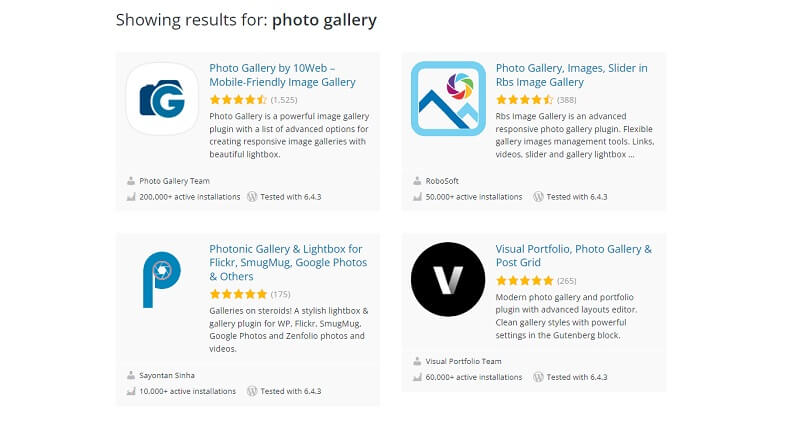WordPress and Squarespace are two website development tools, however, this article highlights the differences between WordPress Vs Squarespace.
You can use Squarespace and WordPress as website-building tools. Each of them powers millions of websites and is well-known.
However, depending on what you’re looking for, these tools may or may not work for you due to their significant variances.
This post will clarify the main distinctions, so it’s advisable to start with a little study.
-
- A Brief Overview Of The Main Differences
- Usability
- The Editor
- Configuration
- Adaptability
- Add-ons
- Models
- Personalization of the Template
- Factor of Frustration
- Online shopping
- Costing
- SEO
- Writing a blog
- Customer Support
- Commonly Asked Questions
- Conclusion
A Brief Overview Of The Main Differences
1. Ease of Use: Compared to WordPress, Squarespace is simpler to use.
2. The Editor: Squarespace’s drag-and-drop editor displays your entire website, but WordPress’ editor does not.
3. Setup – WordPress has more and better hosting options, but Squarespace websites may be set up more quickly and easily.
4. Flexibility: When it comes to flexibility, WordPress outperforms Squarespace.
5. Plugins: The vast selection of plugins available for WordPress is its greatest asset. Here you can check the top five best WordPress plugins.
6. Templates: Squarespace has an exquisite theme collection. There is a huge marketplace for themes on WordPress.
7. Customizing Your Template – Squarespace offers more advanced capabilities that allow you to alter your template without modifying code.
8. Frustration Factor – You might get frustrated with Squarespace and WordPress at some point but for different reasons.
9. E-commerce – WordPress and Squarespace both handle the fundamentals of e-commerce, but WordPress offers significantly more customization options.
10. Pricing – Squarespace and WordPress will require payment, but the methods are very different.
11. SEO – Squarespace and WordPress both address the fundamentals of SEO, but WordPress is the better choice if you’re serious about it. Here you can check 5 Ways How SEO Can Help Your Business 2024
Usability
Concerning usability, Squarespace comes out on top.
Squarespace is easy to use and straightforward. It’s far more user-friendly than WordPress. With Squarespace, you won’t ever need to touch code.
However, the learning curve with WordPress is higher. It could be challenging for inexperienced users to traverse WordPress’ complex menu structure. With WordPress, you’ll probably need to make some adjustments to HTML or CSS code at some time.

The Editor
The drag-and-drop page editor in Squarespace is superior.
Compared to WordPress, Squarespace makes page editing simpler.
You can add content blocks (text, photos, forms, and videos) with Squarespace, and they can be rearranged into columns and dragged up and down the page:

The page editor in WordPress is known as Gutenberg. You can add Blocks (text, photos, forms, and videos) and arrange them into columns or up and down the page:

The most irritating thing about WordPress’s page editor is that you can’t examine your page about your entire website—instead, we have to click Preview to see what our page will look like:

As a result, you’ll frequently find yourself switching between the preview and the editor to check how everything is looking.
Note: To make WordPress’s page editor more like Squarespace, you can install the Elementor plugin. It’s not as simple to use, but it does sort of get the point over.
Configuration
Squarespace websites can be set up more quickly and easily, but WordPress websites have more hosting alternatives.
Setting up a website is now incredibly quick and simple thanks to Squarespace. In fifteen minutes, even a novice could set up a website on a domain name.
Beginners will need a lot more time to get their WordPress website up and running.
One of the main causes of this is that you must locate a WordPress host. Thus, you must first select a web host. Hosting is included with Squarespace, so you never have to worry about it.
You should choose WordPress if you value having the option to select or change your web host.
Squarespace websites are simpler to set up, while WordPress has more customizing possibilities.
Adaptability
In terms of flexibility, WordPress triumphs hands down.
Most of our attention has been focused on how Squarespace offers a lower learning curve than WordPress.
You may be asking yourself, why doesn’t WordPress just make things simpler?
There is, in fact, a valid explanation! Because WordPress is so adaptable, there is a greater learning curve.
In software, this kind of trade-off is typical. It is simple to use simple software. Stronger software typically has a more challenging learning curve.
Put simply, WordPress offers many greater customization options:
- Open-source software is available for WordPress: It implies you can use WordPress whatever you choose and access the codebase. Furthermore, WordPress coding is a familiarity for thousands of developers.
- Set up your server as you see fit: Do you wish to use a particular CDN? You can accomplish that with WordPress, but not with Squarespace.
- Construct your blocks: Do you want to use the page editor to make your unique blocks? Not with Squarespace, but with WordPress, you can accomplish it.
- If you know how to write code, feel free to alter your theme any way you like: With WordPress, you can alter your theme any way you like, provided you know how to write code; this isn’t the case with Squarespace.
There’s no denying that Squarespace is less adaptable than WordPress.
Add-ons
WordPress’s greatest asset is the vast array of available plugins.
With WordPress, you may enhance your website’s functionality with over 11,000 plugins. There are premium and free plugins available.
Here are a few instances of plugins:
- Elementor: A visual page builder that allows for drag-and-drop editing of pages.
- Buddypress: Create a miniature social network on your WordPress website.
- Yoast SEO: Includes templating for meta titles and descriptions, canonical URLs, XML sitemaps, and more.
- Advanced Custom Fields: Allows you to incorporate custom fields into your own CMS.
- Tablepress: Use formulas to create tables in an interface akin to a spreadsheet.
There is no equivalent for these plugins in Squarespace. Although they do offer a limited number of Extensions, the majority are for e-commerce.
Models
Squarespace is renowned for its stunning themes. There is a huge marketplace for themes on WordPress.
I’ve used Squarespace for multiple personal websites since, for the most part, it just looks nice without requiring much work from me.

For my websites, such as my music website, I utilize Squarespace.
The most well-known feature of Squarespace is its gorgeous templates, which are all included in any plan:
Twenty-One is the only theme that comes with WordPress. If you’d like additional themes, you have two choices:
- Purchase A Theme: With 11,000 themes available for purchase, Theme Forest is a great place to peruse theme marketplaces.
- Locate A Free Theme: WordPress.org offers over 4,000 free themes. Alternatively, you can search WordPress.org for a free theme; over 4,000 are available. However, I discovered that many of the “free” themes lack features, and you must upgrade to Pro to have them.
WordPress themes are widely available; some of them, like Astra, are good.
Personalization of the Template
Customizing your theme is a relatively simple process with Squarespace.
Squarespace template customization is quite simple. For instance, you can update this Color Palette to change the colors on your website:

Your entire website will immediately use this color scheme.
What occurs then if you are unhappy with the way the color is applied? Although Squarespace allows you to make those particular adjustments as well if you’d like:
Not happy with the way color was applied? Additionally, Squarespace gives you precise control over color application.
I’ve discovered that the WordPress style editor, known as Customizer, varies somewhat depending on the theme—certain themes don’t have any significant style options. It’s not always consistent.
The benefit of WordPress, though, is that you can almost definitely find a theme for it if you have a certain aesthetic in mind. If you are unable, you can always get a developer to make a custom theme—something Squarespace does not allow.
Factor of Frustration
You might eventually become frustrated with both Squarespace and WordPress but for different reasons.
In what ways, then, could WordPress or Squarespace irritate you? What could make you crazy?
You will become frustrated with WordPress when things simply do not function.
The WordPress ecosystem is so large that it might be difficult to make connections between it all or even locate what you’re looking for. Here are a few instances:
- Too much: Do you need a picture gallery? The WordPress plugin shop has more than 850. Who is meant to sort through all of that?
- Incompatibilities with plugins: It’s rather uncommon to discover conflicts between themes, plugins, and specific WordPress versions; sometimes, adjusting the code is necessary to resolve these issues. You only need to read through plugin reviews to realize how this is frustrating other people.
- Keeping An Eye on Security: Updating your WordPress website is essential if you want to maintain security. However, it might be annoying when updating WordPress damages already installed themes or plugins—ugh!
Squarespace is free of these annoyances. Do you require a photo gallery? Squarespace has developed an excellent photo gallery that meets the needs of 95% of consumers. Additionally, you never have to worry about incompatibilities or updating Squarespace because everything just works and Squarespace takes care of things behind the scenes.
So what about Squarespace will irritate you so much?
Squarespace has limitations that you could find arbitrary, especially if you try to do something out of the ordinary!
For instance, on Squarespace, it is not possible to make a block display on desktop but not on mobile devices unless you are ready to go into CSS code.
Online shopping
WordPress offers far greater customization options than Squarespace, yet both platforms handle the fundamentals of online shopping.
The official WordPress e-commerce plugin is called WooCommerce. Therefore, WooCommerce is what you should use if you’re using WordPress to create an online store.
It can be very difficult to customize WooCommerce, particularly in layouts.
Use Squarespace if you’re searching for a simple setup and customization.
Additionally, everything integrates with Squarespace. I adore being able to view my store’s metrics and email marketing together.
Note: If you want to stay away from transaction costs, you should use Squarespace’s commerce options.
I mean ship and sell things when I say e-commerce. I would choose Squarespace if you’re interested in selling subscriptions or appointments.
Costing
Both Squarespace and WordPress will require payment, but the methods are very different.
Ultimately, the specific configuration of a website will determine whether the platform—WordPress or Squarespace—is more expensive.
Squarespace Costs
Squarespace has four monthly all-inclusive plans with prices ranging from $12 to $40.
Hosting, templates, and domain registration are all included with any package (if ordered annually). E-commerce is included in the more expensive subscriptions as well.

WordPress Costing
Although WordPress is free to use, you will need to host it someplace, and a good host will cost roughly the same as a website package from Squarespace.
WordPress themes are accessible for free, however the finest ones are sold. A premium WordPress theme will cost you between $39 and $120, but you will receive lifetime access to the theme for that amount.
While many WordPress plugins are available for free, the greatest plugins are frequently sold. For instance, extensions for WooCommerce, a WordPress e-commerce plugin, can be purchased for up to $299. Some WordPress plugins, such as WPForms, which costs $40 annually, are billed on a recurrent basis.
SEO
WordPress and Squarespace both offer minimal SEO coverage, but if you’re serious about SEO, you should pick WordPress.
Squarespace and WordPress both address the fundamentals of SEO for small businesses, but WordPress excels when it comes to more complex SEO requirements.
WordPress is far more equipped to handle adding rich data markup for reviews, for instance. It’s technically possible, but it’s a major pain in the ass.
Site speed is crucial, and Squarespace usually scores between 40 and 50 in my experience. WordPress is quite flexible; you can discover WordPress websites with a score of 99 or 10 depending on how you set it.
Writing a blog
Squarespace is the greatest website builder when it comes to blogging. The features are numerous and include:
- Markdown compatibility
- Support for podcasts
- RSS sources
- Google Power
- Many contributors Plus additional
All of these capabilities and many more are, of course, covered by WordPress.
Ultimately, Squarespace is a wonderful option if you’re searching for an all-in-one, simple-to-set-up solution. If you want to be able to modify everything and take blogging seriously, WordPress is a superior option.
Customer Support
Additional information will be available from Squarespace customer service.
During EST business hours, Squarespace offers live chat assistance and email support around the clock.
Although some premium themes and plugins include some customer assistance from the developer, WordPress is an open-source platform and does not come with any customer support. Additionally, a few specialized web hosts can assist you with WordPress installation and setup.
The fact that WordPress is so flexible makes it difficult for WordPress help to pinpoint the problem.
Because the proof is almost always anecdotal, customer service is a contentious subject. My interactions with Squarespace and WordPress providers have been excellent.
Commonly Asked Questions
Is Squarespace inferior to WordPress?
It is entirely dependent upon the type of website you are creating. If you’re creating a standard website, I’d choose Squarespace. If you are creating a website that requires unique functionality, I would use WordPress.
Is Squarespace more expensive than WordPress?
The cost of Squarespace and WordPress varies. Whereas WordPress requires separate payments for themes, plugins, and hosting, Squarespace offers everything in one bundle.
Are professionals Squarespace users?
Indeed. A group of web designers utilizing Squarespace is called Squarespace Circle.
Does my domain belong to Squarespace?
No. Squarespace merely assists with domain name registration. You are the one who owns the domain.
Does WordPress have any relevance anymore?
Without a doubt. Not even close, WordPress continues to power more websites than any CMS or website builder.
Is Squarespace the finest substitute for WordPress?
The greatest WordPress substitute will rely on the type of project you’re working on. There are plenty of them. For instance, Webflow is a superior WordPress substitute if you want all of the versatility that WordPress offers.
Still, Squarespace is the best option for most individuals when it comes to creating stunning websites quickly.
Conclusion:
I use a straightforward guideline when deciding between Squarespace and WordPress.
My selection is:
- Square footage for traditional web pages
- WordPress for non-traditional web pages… This raises the query:
A Website Is Conventional When?
The following are a few instances of traditional websites:
- Blogs Portfolios
- Websites for small businesses
- Websites for restaurants, etc.
These websites are traditional because they only require traditional elements, which Squarespace does a great job of enabling. Examples of these features include photo galleries, forms, and maps.
The Reasons WordPress Is Not a Good Choice for Conventional Websites.
Let’s imagine you wish to enhance your WordPress website with a photo gallery. A photo gallery is a standard element that is required for the majority of websites.
Regretfully, if you search for “photo gallery plugins” on WordPress, you will get hundreds and hundreds of results. It can take hours to choose which plugin is appropriate for your website; some may not work with your theme, while others may not have all the capabilities you require.

There are hundreds of photo gallery plugins available for WordPress.
However, Squarespace provides one really good Content Block for a photo gallery. It looks fantastic with any theme and is dependable and simple to use. Additionally, it is adaptable and meets the needs of 99 percent of photo galleries.
If all I’m doing is creating a standard website, I would prefer to use something like Squarespace because it just works.
When Is An Unconventional Website?
This is where WordPress excels.
If a website has a function that you wouldn’t think a normal small business website would need, then it is considered unorthodox.
What if you desired to have a social network on your website, for instance? BuddyPress is a WordPress plugin made specifically for that purpose.
There are thousands of such plugins exclusively for WordPress.
To give you an idea of the sheer number of weird and distinctive WordPress plugins that may be added to your website, here are a few of the more peculiar ones:
You can produce random content with the:
- Content Randomizer: For instance, you might set up your sidebar to alternately display a collection of jokes and quotes at random.
- Redirection: A 301 redirect manager is called Redirection.
- Visual Link Preview: generates link previews that resemble Facebook.
- Tablepress: With Tablepress, you may build tables using an interface similar to a spreadsheet.
Squarespace is an exclusive, moderator-only network. Squarespace can never equal the quantity of WordPress plugins as a result.
However, because WordPress is open source, a vast array of functionalities are accessible. This is excellent for unique websites.
You can also check our article on Wix vs WordPress



